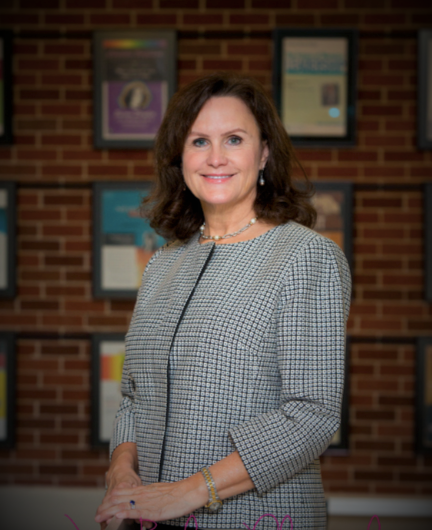
Name: Denise Butler
Major(s) and Graduation Year(s): 1975, Bachelor of Science, Biology; 1984, Master of Science, Geology
Based in:Houston, TX
Job Title:Geoscience Discipline Lead, Western Hemisphere for Shell Exploration and Production Company
At the conclusion of an extraordinary career in Geoscience, alumna Denise Butler (NC ‘75) reflects on the origins and highlights of her lifetime of studying the natural world.
What sparked your interest in STEM?
Originally it was my high school biology teacher, Mrs. Turner. She made me realize that it was ok for a girl to be good at science and encouraged me to keep being curious.
What is your proudest accomplishment from your time at Shell?
In my role as Discipline Lead, I was able to ensure that half of the employment offers we made for exploration geologists were to women, which had never been the case for Shell.
I built a technical training program for new hires (and got it funded!) that was adopted by Global Shell and instituted in most major exploration hubs across the company. Also, I developed a program that encompassed more than just technical training, but also included hands-on coaching and mentoring and personal development opportunities like field trips, presentation skills, confidence building activities, language support for ESL employees, etc.
Lastly, after leaving that role, many of the younger staff have acknowledged how much they appreciated my help, and they stay in touch with me to this day!
Looking to the future, what progress would you like to see made regarding gender equity and representation in scientific fields?
This is a huge issue…where to start?
- Getting more in the door! We must encourage young girls who are interested in science to pursue it in school and raise the awareness that there are good career options for them.
- Retention. In many technical fields, women are getting hired at a rate close to 50% but the attrition rate is very high. This is a combination of hostile workplace environments, seeing limited opportunities for advancement, and being essentially penalized for starting families. Passing federal laws that ensure paid maternity & paternity leave and guaranteeing that a position of equal rank and salary will be available upon return would go a long way. Helping with childcare, either financially or with onsite facilities, has proven to be a big plus in female retention, but is rarely found outside of large corporations. Cost is usually cited as an excuse, but it isn’t compared to the cost of losing a trained and competent employee.
- Public Accountability for Academic Institutions. I believe academic institutions have even bigger problems with gender equality and harassment issues, as there is very little, if any, external oversight or public accountability. Without legislation ensuring “equal treatment under the law” regarding salaries, opportunity for advancement, credit for their work, tenure, etc., they can operate as “closed shops”, and none are the wiser.
In 37 years, I have seen a lot of progress made in terms of opportunities for women and improvements in the workplace environment, but there is still a lot to be done. Many of the obstacles and behaviors that have held women back, regardless of their field, have gone from being overt to covert, and that is much harder to fight!
